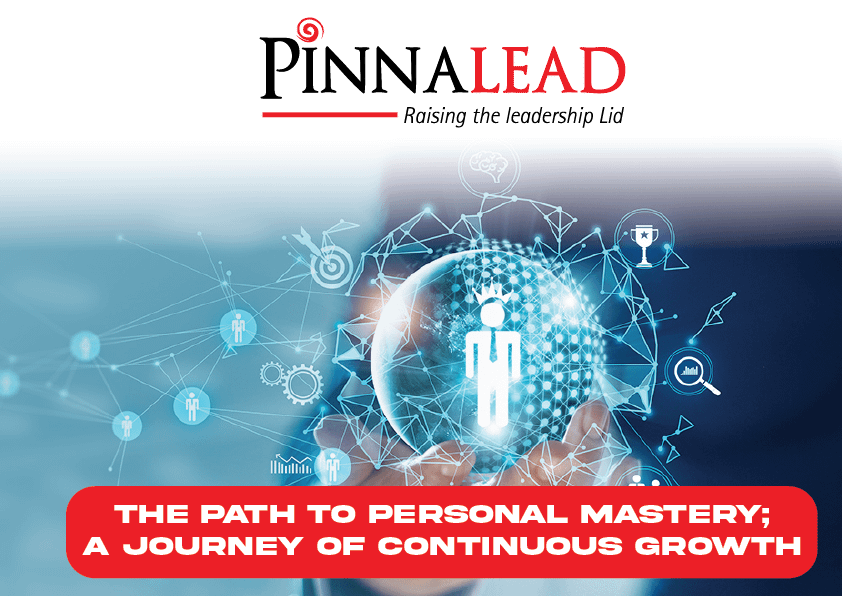
As we move through life, we encounter countless challenges, changes, and opportunities that shape us. While many of us strive for success, few take the time to cultivate personal mastery — a commitment to continuous self-improvement, awareness, and growth. In today’s fast-paced world, the pursuit of personal mastery has become essential for anyone looking to achieve sustained success and fulfillment, both personally and professionally.
What is Personal Mastery?
Personal mastery goes beyond simply acquiring skills or achieving goals. It’s a lifelong journey toward becoming the best version of ourselves, aligning our actions with our deepest values, and maintaining a clear vision of what we want to achieve. As defined by Peter Senge, a pioneer in organizational development, personal mastery is about “continually clarifying and deepening our personal vision, focusing our energies, developing patience, and seeing reality objectively.” In essence, it’s a holistic approach to personal development that emphasizes self-awareness, continuous learning, and resilience.
The Key Components of Personal Mastery
1. Self-Awareness and Mindfulness
The journey of personal mastery begins with understanding who we are. This involves cultivating self-awareness — recognizing our strengths, weaknesses, emotions, and motivations. Practicing mindfulness, which involves staying present in the moment without judgment, helps us respond more effectively to life’s challenges.
Self-awareness empowers us to identify areas where we can grow and to act with intention, which is critical for making meaningful progress on our personal mastery journey.
2. Vision and Goal Setting
A clear vision is essential for guiding our efforts and maintaining focus on what truly matters. Personal mastery encourages us to set purposeful goals that align with our values and aspirations. These goals aren’t just about achieving success in a traditional sense but about cultivating a life that reflects our true selves.
Revisiting our vision and goals periodically helps keep us motivated and ensures that we stay aligned with our desired path, even when circumstances change.
3. Commitment to Lifelong Learning
A fundamental principle of personal mastery is the commitment to continuous learning. Life is constantly evolving, and so should we. Embracing a growth mindset, being open to new experiences, and actively seeking knowledge are essential aspects of lifelong learning.
By challenging ourselves to learn and grow, we not only build resilience but also gain the confidence to navigate complex situations and adapt to changing environments.
4. Emotional Intelligence and Self-Regulation
Emotional intelligence, or the ability to understand and manage our emotions and those of others, is a core component of personal mastery. Learning to self-regulate — to respond calmly rather than react impulsively — enables us to maintain composure in difficult situations.
Cultivating emotional intelligence helps us build stronger, more harmonious relationships and enhances our ability to lead with empathy and integrity.
5. Resilience and Adaptability
The path of personal mastery requires resilience. Developing the ability to persevere through setbacks, learn from failures, and adapt to new situations is vital for sustained growth. Each challenge we face becomes a valuable lesson that propels us forward.
Resilience and adaptability help us to bounce back from adversity and transform obstacles into opportunities for growth.
Why is Personal Mastery Important?
Achieving personal mastery enriches every area of our lives. As we grow, we become more equipped to handle challenges, lead others, and make a positive impact in the world. Personal mastery empowers us to break free from limiting beliefs, make better decisions, and create a sense of purpose and fulfillment. It’s not just about reaching the top of a ladder; it’s about finding peace and confidence within ourselves, irrespective of external circumstances.
In professional settings, those who have attained a level of personal mastery often emerge as effective leaders and inspiring role models. They possess the clarity, emotional intelligence, and resilience needed to navigate complex work environments and lead teams toward common goals. By focusing on personal mastery, we set an example for others and encourage a culture of growth and continuous improvement.
Steps to Begin Your Journey to Personal Mastery
1. Start with Self-Reflection
Take time to understand your core values, beliefs, and what drives you. Consider keeping a journal to document your thoughts, emotions, and experiences as you grow.
2. Set Purposeful Goals
Identify long-term goals that align with your vision for your life. Break these goals down into smaller, actionable steps to stay focused and motivated.
3. Embrace a Growth Mindset
Approach each day with an openness to learn and grow. See mistakes as opportunities for learning rather than setbacks, and constantly challenge yourself to step out of your comfort zone.
4. Practice Mindfulness and Self-Regulation
Cultivate mindfulness through meditation, deep breathing exercises, or other practices that keep you grounded. Develop the habit of pausing before reacting to maintain control over your emotions.
5. Seek Feedback and Support
Surround yourself with people who support your growth. Seek feedback from mentors, colleagues, or friends to gain new perspectives and insights into your personal development journey.
6. Reflect and Adjust Regularly
As you progress, revisit your goals and adjust your approach as needed. Celebrate your achievements and remain committed to the journey, understanding that personal mastery is a process, not a destination.
